Value Added Student Roles that Align Education and Health System Needs
This session will describe Penn State College of Medicine’s new Systems Navigation Curriculum (SyNC) which involves building relationships and collaborating with leaders of affiliated health systems in central Pennsylvania to design educational experiences that align medical education with health system needs. SyNC, launched in August 2014, combines a course in the Science of Health Systems with an immersive experience as a patient navigator. We will focus our discussion on the patient navigation component which provides opportunity for value added student roles in clinical settings in the Penn State Hershey Health System and other health systems throughout central Pennsylvania. In addition, we will discuss how the longitudinal curriculum integrates core systems sciences such as health policy, high-value care, and population and public health with two threads related to evidence-based medicine, along with teamwork and leadership training throughout seven modules. Both the curriculum and patient navigation component are designed to allow students to develop the knowledge, skills and attitudes to function effectively amid the complexities of an evolving health system.
The Developmental Pursuit of Foundational Scientific Knowledge
This session will describe efforts at Vanderbilt University School of Medicine to inculcate attention to the scientific foundations of medicine during the post-clerkship phase (years 3 and 4 in our revised “Curriculum 2.0”). We will discuss “Integrated Science Courses,” which intertwine ongoing foundational learning with clinical experiences to enhance student perception of relevance. We will discuss a model to intentionally foster master workplace learners by articulating a process for ongoing learning throughout one’s medical practice. Finally, we will discuss the use of shared developmental milestones throughout the entire curriculum to measure students’ approach to learning and ongoing knowledge acquisition.
Closing the Gap Between Undergraduate Medical Education and Practice Realities of Today and Tomorrow
During this session Dr. Dyrbye, the PI on Mayo Medical School’s Accelerating Change in Medical Education Grant, will describe efforts to design, implement, and evaluate a new model of science of health care delivery (SHCD) education, generate milestones specific to SHCD and novel assessment tools, and a ‘resiliency toolbox’ of resources and to better prepare students to care for themselves and each other
An Accelerated Pathway to Produce 21st Century Primary Care Physicians
There are concerns that the current medical education structure and processes are inefficient and do not adequately prepare our students to function in our evolving healthcare systems. New educational models significantly modify the historic 2 + 2 time-based framework of UME. However, challenges will arise in implementing these new models. What will the impact be on accreditation processes, student selection for and matriculation into residency, and eligibility for licensure and board certification? The panelists will discuss the current controversies that arise in relation to the transformation of the educational program and provide an update on the Accelerated Competency-based Education in Primary Care (ACE-PC) at the University of California, Davis – a 6 year UME-GME pathway for students interested in primary care careers.
Educating Medical Students in a Clinical Environment Throughout the Entire Curriculum
Innovative approaches to medical student education in the US have recently been discussed again as the cost of higher education and medical school continue to increase. Creative options have been proposed, including elimination of clinical experiences, requiring historical medical school coursework to be completed in the undergraduate years and shortening the duration of medical school, among others. In this webinar, information about a six year combined Baccalaureate/MD program will be provided. In this program, students are admitted directly from high school and immediately begin integrated undergraduate and medical school coursework. Similar to medical schooling in other countries, this program has over 40 years experience educating students in the heart of the US. With over 3000 graduates, the program has alumni who are instrumental in many aspects of medicine, achieve great success and hold remarkable leadership positions throughout the United States.
Objectives:
- Provide a description of the unique six year combined degree program at the University of Missouri-Kansas City School of Medicine.
- Discuss the curriculum and how integrating traditional classroom and clinical experiences together benefits student education.
- Compare objective performance information to national standards.
- Review of unique issues that occur among the student population, which is younger than that of traditional US medical schools.
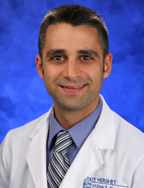 Jed David Gonzalo, MD, MSc, received a Bachelor’s degree in Biology/Philosophy from the University of Scranton, and his medical degree from the Penn State College of Medicine, receiving AOA status. He completed his internship, residency, and chief residency at the Beth Israel Deaconess Medical Center, Harvard Medical School, in Boston, MA. Following residency, Dr. Gonzalo completed a fellowship at the University of Pittsburgh in General Internal Medicine/Medical Education, earning a Master’s of Science in Medical Education. In 2012, he was hired as Assistant Professor of Medicine and Public Health Sciences at the Penn State College of Medicine. He has a track record in health services research, with 20+ peer reviewed publications, focusing on team-based bedside rounds, feedback/reflection, quality of care, healthcare disparities, and the interface between education and care delivery. As Associate Dean for Health Systems Education, Dr. Gonzalo coordinates the design and implementation of the Penn State College of Medicine grant awarded by the American Medical Association to “Accelerate Change in Medicine Education.” The Systems Navigation Curriculum includes a 17-month Science of Health Systems course and a Patient Navigator experience, whereby students are embedded into several health systems in south-central Pennsylvania to serve as patient navigators. Since beginning his faculty position, Dr. Gonzalo has received five education awards through the Penn State College of Medicine, and is also a Harvard Macy scholar.
Jed David Gonzalo, MD, MSc, received a Bachelor’s degree in Biology/Philosophy from the University of Scranton, and his medical degree from the Penn State College of Medicine, receiving AOA status. He completed his internship, residency, and chief residency at the Beth Israel Deaconess Medical Center, Harvard Medical School, in Boston, MA. Following residency, Dr. Gonzalo completed a fellowship at the University of Pittsburgh in General Internal Medicine/Medical Education, earning a Master’s of Science in Medical Education. In 2012, he was hired as Assistant Professor of Medicine and Public Health Sciences at the Penn State College of Medicine. He has a track record in health services research, with 20+ peer reviewed publications, focusing on team-based bedside rounds, feedback/reflection, quality of care, healthcare disparities, and the interface between education and care delivery. As Associate Dean for Health Systems Education, Dr. Gonzalo coordinates the design and implementation of the Penn State College of Medicine grant awarded by the American Medical Association to “Accelerate Change in Medicine Education.” The Systems Navigation Curriculum includes a 17-month Science of Health Systems course and a Patient Navigator experience, whereby students are embedded into several health systems in south-central Pennsylvania to serve as patient navigators. Since beginning his faculty position, Dr. Gonzalo has received five education awards through the Penn State College of Medicine, and is also a Harvard Macy scholar.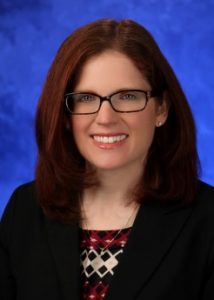 Britta M. Thompson earned her B.S. from Kansas State University, her M.S. from the University of Missouri at Columbia and her Ph.D. in educational psychology from Texas A&M University. After receiving her Ph.D., she joined the faculty at Baylor College of Medicine in 2004 where she became the Director of Evaluation and Assessment and the Director of the Simulation Program. In 2009, became the Assistant Dean for Medical Education and Director of the Office of Medical Education at the University of Oklahoma College of Medicine. In March of 2015, she joined the faculty at Penn State Hershey College of Medicine as the Associate Dean for Learner Assessment and Program Evaluation. Her research interests in medical include evaluating curricular innovations such as Team-Based Learning, assessing cultural competency and the hidden curriculum, evaluating faculty development programs, and evaluating ways to promote student reflection. Through her work, she has been awarded several teaching and educational research awards. Her research has resulted in almost 200 regional and national peer-reviewed and invited presentations and 40 peer-reviewed articles.
Britta M. Thompson earned her B.S. from Kansas State University, her M.S. from the University of Missouri at Columbia and her Ph.D. in educational psychology from Texas A&M University. After receiving her Ph.D., she joined the faculty at Baylor College of Medicine in 2004 where she became the Director of Evaluation and Assessment and the Director of the Simulation Program. In 2009, became the Assistant Dean for Medical Education and Director of the Office of Medical Education at the University of Oklahoma College of Medicine. In March of 2015, she joined the faculty at Penn State Hershey College of Medicine as the Associate Dean for Learner Assessment and Program Evaluation. Her research interests in medical include evaluating curricular innovations such as Team-Based Learning, assessing cultural competency and the hidden curriculum, evaluating faculty development programs, and evaluating ways to promote student reflection. Through her work, she has been awarded several teaching and educational research awards. Her research has resulted in almost 200 regional and national peer-reviewed and invited presentations and 40 peer-reviewed articles.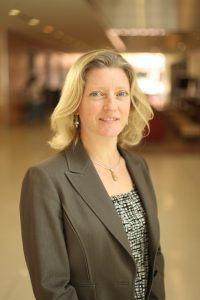 Kimberly D. Lomis, MD is Associate Dean for Undergraduate Medical Education, Associate Professor of Surgery, and Associate Professor of Medical Education and Administration at Vanderbilt University School of Medicine. She is charged with the implementation of a major revision of the medical school curriculum, “Curriculum 2.0.” In that capacity, Dr. Lomis guided the efforts of over one hundred faculty members, residents and students to create an integrated, dynamic system of learning that is responsive to the needs of individual learners.
Kimberly D. Lomis, MD is Associate Dean for Undergraduate Medical Education, Associate Professor of Surgery, and Associate Professor of Medical Education and Administration at Vanderbilt University School of Medicine. She is charged with the implementation of a major revision of the medical school curriculum, “Curriculum 2.0.” In that capacity, Dr. Lomis guided the efforts of over one hundred faculty members, residents and students to create an integrated, dynamic system of learning that is responsive to the needs of individual learners.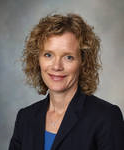 Lotte Dyrbye MD, MHPE, FACP is Professor of Medicine, Professor of Medical Education, and Consultant in the Division of Primary Care Internal Medicine at Mayo Clinic, Rochester, Minnesota. She is also Associate Chair for Faculty Development, Staff Satisfaction, and Diversity for the Department of Medicine, Mayo Clinic, and Associate Director of the Department of Medicine Program on Physician Well-being. She is the Primary Investigator on Mayo Medical School’s grant “Accelerating Change in Medical Education,” awarded by the AMA.
Lotte Dyrbye MD, MHPE, FACP is Professor of Medicine, Professor of Medical Education, and Consultant in the Division of Primary Care Internal Medicine at Mayo Clinic, Rochester, Minnesota. She is also Associate Chair for Faculty Development, Staff Satisfaction, and Diversity for the Department of Medicine, Mayo Clinic, and Associate Director of the Department of Medicine Program on Physician Well-being. She is the Primary Investigator on Mayo Medical School’s grant “Accelerating Change in Medical Education,” awarded by the AMA.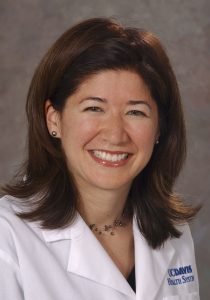 Dr. Fancher is Associate Professor of Internal Medicine at the University of California Davis School of Medicine. As a board certified primary care internist and health services researcher, her work focuses on care for medically vulnerable, cross-cultural communication and workforce development. She completed her undergraduate studies in Classics and Biology at Cornell University and her medical school and residency at the New York University School of Medicine/Bellevue Hospital. She spent four years in the US Air Force as an internist and Associate Program Director for the Internal Medicine Residency Program at Travis Air Force Base. She completed a Health Services Research fellowship and obtained her MPH at UC Davis. She is currently PI on an American Medical Association grant to create a six-year medical school and residency pathway to primary care practice and a HRSA Title VII training grant to promote primary care careers in medically underserved settings.
Dr. Fancher is Associate Professor of Internal Medicine at the University of California Davis School of Medicine. As a board certified primary care internist and health services researcher, her work focuses on care for medically vulnerable, cross-cultural communication and workforce development. She completed her undergraduate studies in Classics and Biology at Cornell University and her medical school and residency at the New York University School of Medicine/Bellevue Hospital. She spent four years in the US Air Force as an internist and Associate Program Director for the Internal Medicine Residency Program at Travis Air Force Base. She completed a Health Services Research fellowship and obtained her MPH at UC Davis. She is currently PI on an American Medical Association grant to create a six-year medical school and residency pathway to primary care practice and a HRSA Title VII training grant to promote primary care careers in medically underserved settings.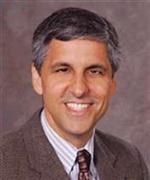 Dr. Henderson graduated from the UCSF School of Medicine and completed his internal medicine residency at the University of Texas Health Science Center San Antonio. He is currently Professor of Clinical Medicine and Vice Chair for Education in the Department of Internal Medicine and served as the Residency Program Director from 2000 to 2012. In 2007, he was appointed Associate Dean of Admissions for the UC Davis School of Medicine. He is the co-principal investigator for the UC Davis Accelerated Competency–based Education in Primary Care (ACE-PC) program, which was funded by the American Medical Association.
Dr. Henderson graduated from the UCSF School of Medicine and completed his internal medicine residency at the University of Texas Health Science Center San Antonio. He is currently Professor of Clinical Medicine and Vice Chair for Education in the Department of Internal Medicine and served as the Residency Program Director from 2000 to 2012. In 2007, he was appointed Associate Dean of Admissions for the UC Davis School of Medicine. He is the co-principal investigator for the UC Davis Accelerated Competency–based Education in Primary Care (ACE-PC) program, which was funded by the American Medical Association. Dr. Brenda Rogers is the Associate Dean for Student Affairs at the University of Missouri-Kansas City School of Medicine, where she is also Associate Professor in Internal Medicine and Pediatrics. She is the Past Chair of the Group on Combined Baccalaureate/MD programs, a national organization composed of representatives of over seventy such programs throughout the United States. Dr. Rogers’s academic interests include the development of professionalism expectations and remediation for students, interdisciplinary educational opportunities and the development of a healthy and well rounded learning environment for students and faculty.
Dr. Brenda Rogers is the Associate Dean for Student Affairs at the University of Missouri-Kansas City School of Medicine, where she is also Associate Professor in Internal Medicine and Pediatrics. She is the Past Chair of the Group on Combined Baccalaureate/MD programs, a national organization composed of representatives of over seventy such programs throughout the United States. Dr. Rogers’s academic interests include the development of professionalism expectations and remediation for students, interdisciplinary educational opportunities and the development of a healthy and well rounded learning environment for students and faculty.